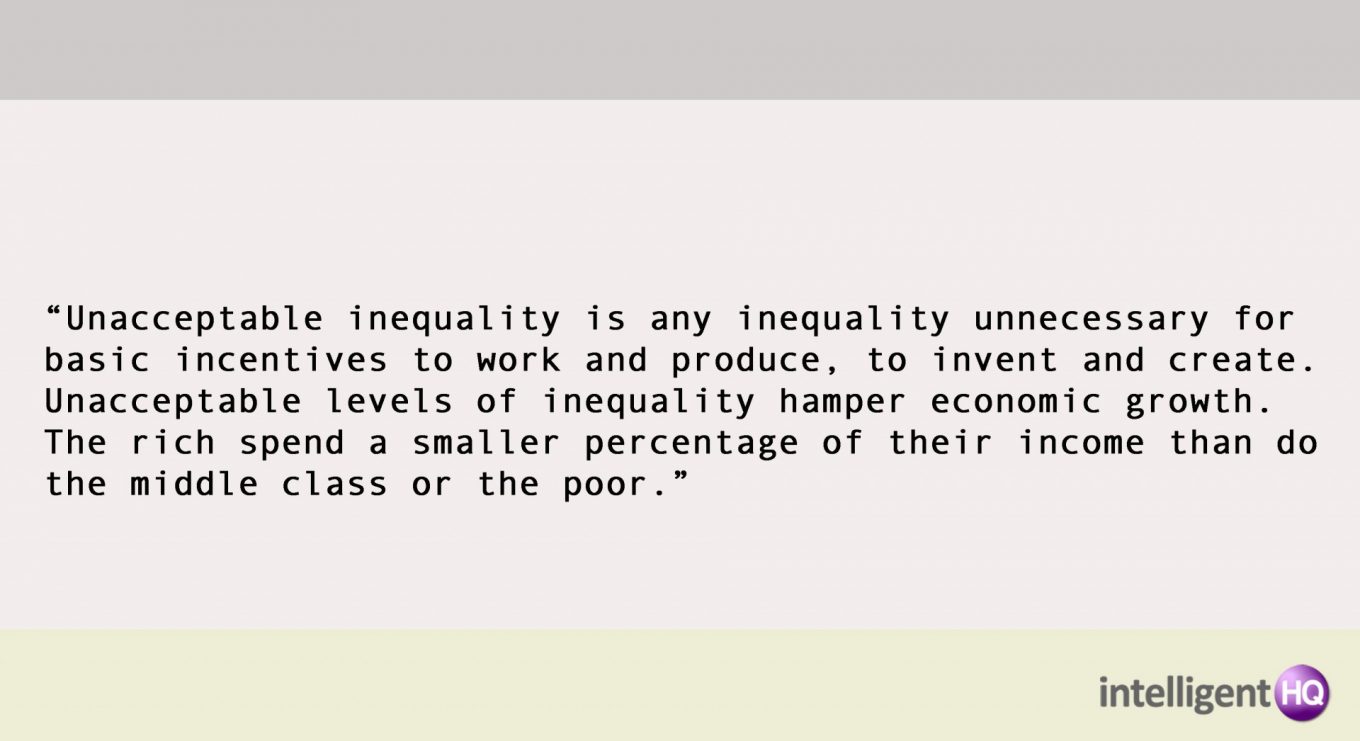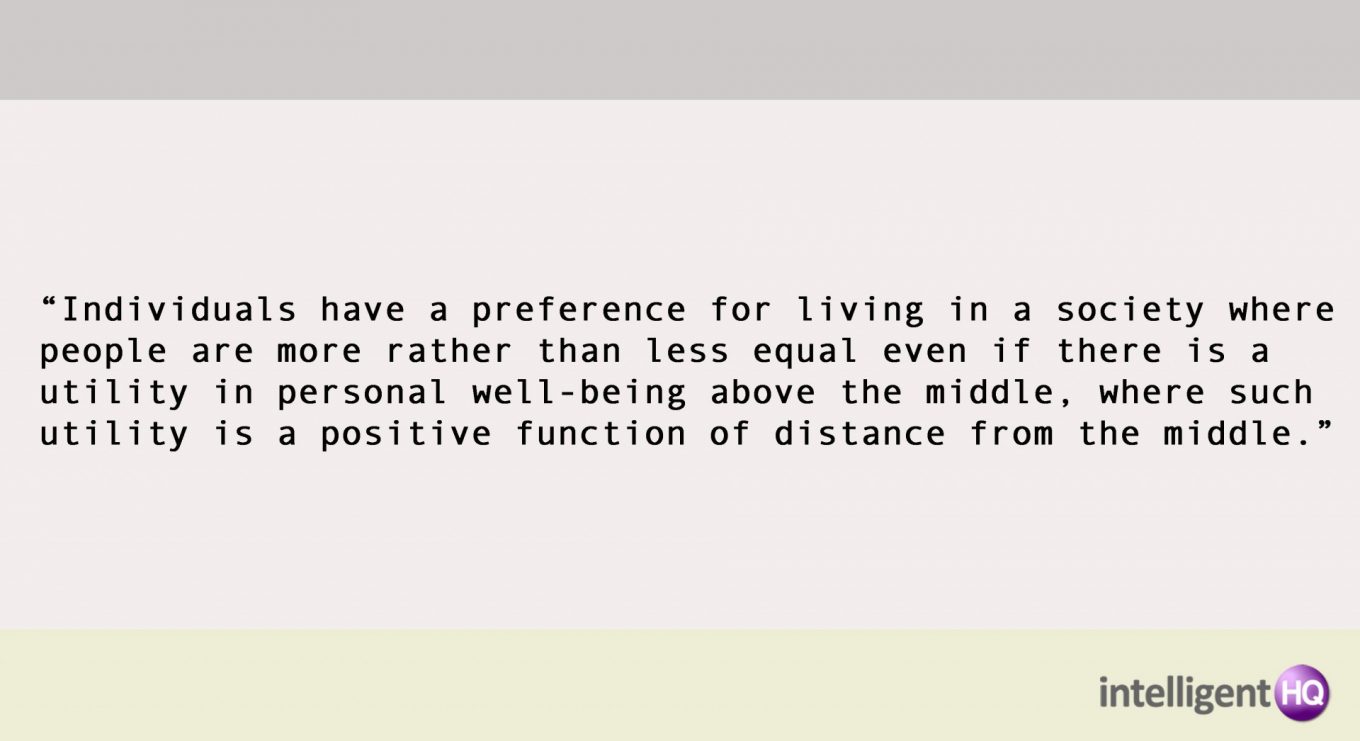
Equality, Ecology, and Sustainability require more than the frame of Utilitarianism
Abstract
Standard economic theory is quite able to accommodate concern for equality, ecology, and sustainability. All can be considered to be public goods from which individuals derive utility. Standard economic theory combined with empirical evidence can show that individuals do indeed prefer greater equality, healthier ecosystems and stronger sustainability for the sake of future generations. Standard theory can also show that markets are incapable of providing these public goods in ample amounts and quality. This paper will make the case for equality, ecology, and sustainability using the conventional framework.
Standard theory has not as yet made the case that the good of the whole exceeds the sum of the good that accrues to individuals, that society and community are real indeed. This paper will make such a case.
The common good exceeds the sum of the parts. In addition the good of the whole as well as the good to individuals involves more than utilitarian calculation. Justice and fairness and ethical behavior all have intrinsic value just because, because they are right. Caring for the earth, other species, future generations, and economic justice demand that we break the boundaries of utilitarian constraints.
The Utilitarian frame as used within standard economics provides insufficient valuation for the common good and insufficient motivation to treasure and protect it. We must do better. The case for equality in the standard frame:
Idealistic
Yes, certainly some level of inequality is necessary in an economic system to provide basic incentives to work and produce, to study and to improve oneself. But such levels of inequality are inherently modest, on the order of perhaps one worker earning 3 or 4 times that of another.

The levels of inequality that plague our economic system are exponentially greater than what is needed or desirable. Unacceptable inequality is any inequality unnecessary for basic incentives to work and produce, to invent and create. Unacceptable levels of inequality hamper economic growth. The rich spend a smaller percentage of their income than do the middle class or the poor. Too much money in too few hands imperils economic growth as it did in the beginnings of both the Great Depression and the Great Recession. Unacceptable inequality reduces social cohesion.
Inequality reduces the ability of different income levels to interact with one another on a social basis, to engage in similar pursuits and forms of entertainment, to experience similar problems, and have common reference points. Unacceptable levels of inequality increase crime rates, and the percentage of a population behind bars is not good for the budget and not good for economic growth. Unacceptable levels of inequality put the rich behind gated communities, aloof and apart from the rest of us. The rich seldom see the rest of us except for when we act as their servants. Individuals have a preference for living in a society where people are more rather than less equal even if there is a utility in personal well-being above the middle, where such utility is a positive function of distance from the middle.
Egregious inequality
Egregious inequality is in evidence when the life expectancy of people is vastly different between income levels. It is also in evidence when there are profoundly different educational opportunities based upon class. The best are then not properly educated and trained and this affects the entire society adversely. Egregious inequality amplifies the disintegration of social cohesion and may well lead to the complete breakdown of society and the political social order.
I cannot think of any society that has ever existed where there was or is too much equality. To the best of my knowledge there has never been nor is there now a society where there was so much equality that too much equality imperiled economic growth by removing incentives to work and produce. And there has certainly not been a society with so much equality that equality lead to social breakdown or the extinction of the society. The former USSR did not fall because of too much equality.
The former USSR did in fact have a great deal of inequality, well beyond the official statistics. Indigenous economies do not lack economic growth because of too much equality; rather economic growth seems not to be that great of a value, where people value relationships and happiness much more so than economic growth. To the best of my knowledge there has never been a society that has even eliminated all forms of egregious inequality let alone the more idealistic case of eliminating all forms of unacceptable inequality.

Sustainability in the standard frame:
It is a relatively simple step in the standard model to make the case for sustainability. The current generation cares something for future generations. The continued existence of the human species coupled with the quality of life and the environment at that time will greatly impact the future children, grand and great grand-children of the current generation. The future quality of life depends greatly on the actions of the current generation. Individuals can strive to save in order to pass on small and even large fortunes to their own children and grand-children, but the future happiness of individual human beings will be shaped and determined far more so by the quality of life and the health of human society and the ecosystem.
Individuals cannot by their own actions make their own society just or fair, preserve the environment, or protect future generations. In addition, the current generation may well care about future generations beyond their progeny. For the current generation, sustainability for the sake of future generations is therefore a public good. The market cannot on its own, provide or insure an adequate amount of any public good, including sustainability. Collective action must be taken.
In addition to the benefits that the current generation receives from action to insure sustainability, future generations will also derive benefits of their own from the sustainable actions taken today. Future generations do not get a vote in either our markets nor in our
policy debates.
The standard model can, but often fails to account for these benefits to future generations. Too often a discount rate is used in cost-benefit analysis which is so high that it seriously undervalues future benefits and costs relative to the present. While a positive discount rate can be justified to account for realistic and credible increases in living standards and advances in technology, too high of a discount rate that relies on unrealistic projections of technical advance seriously undervalues future generations. Just as future generations do not get a vote in our markets and policy debates, they also do not get a say in what the appropriate discount rate should be.
For The Sake of The Common Good: Breaking the Boundaries of Rational Calculation Part 2
Dr. Steve Szeghi is Professor of Economics at Wilmington College, Ohio, USA. At various times Professor Szeghi has been Department Head and Area Coordinator for Accounting, Business Administration and Economics. In 2009 Steve Szeghi co-authored, with Peter Brown, Geoffrey Garver, Keith Helmuth, and Robert Howell, Right Relationship: Building a Whole Earth Economy. In 05-06 Szeghi’s article, Lessons in Sustainable Development on the Navajo Nation, appeared in the Journal for Economics and Politics. He has been the author of many articles on social justice, environmental economics, primers in economics for social activists, and the economies of indigenous and aboriginal peoples as alternative economic systems, in numerous on-line journals such as Journal of Globalization for the Common Good Initiative, Global Media Journal, Common Dreams, and Share the World’s Resources, as well as printed journals such as Kosmos.
Professor Szeghi writes as well on the spiritual values and ethical aspects of social justice, equality, and ecology as pertaining to the economy and economic ways of thinking. He has had in recent years numerous international engagements as a speaker and presenter focusing on these topics at conferences and forums throughout the world. Starting at the age of 15, Steve Szeghi began working ardently for social justice doing substantial work with the United Farm Workers Union (Cesar Chavez) until his mid-twenties. Steve Szeghi continues to work for social justice, equality, and the environment; working with or consulting for on a pro-bono basis in recent years, environmental and labor organizations, candidates for political office who demonstrate a commitment to social justice and ecology, as well as indigenous groups and tribal governments.



























